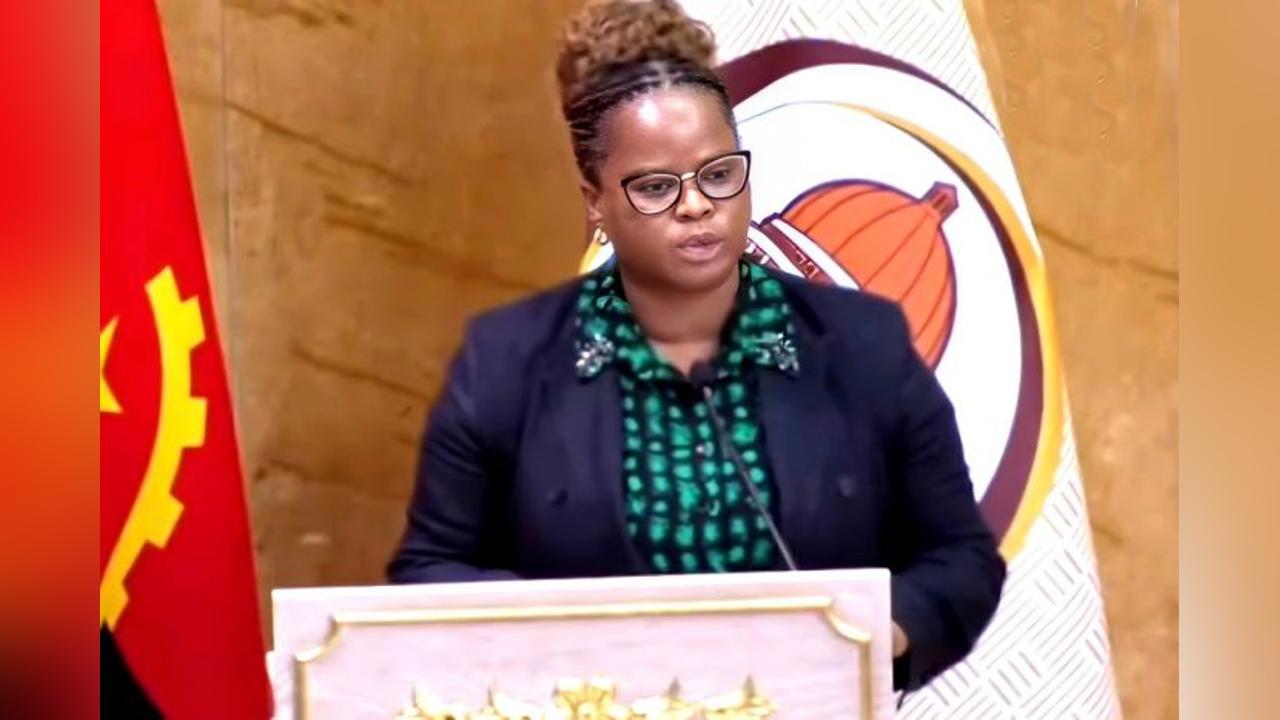Africa-Press – Angola. UNITA accused the Angolan government of spending 20 million dollars (17.7 million euros) to “distract the Angolan people” with the football match between Angola and Argentina, while “thousands of children die of hunger every day”.
Referring to the celebrations of the 62nd anniversary of the proclamation of the African Union, which is marked on May 25, Africa Day, the UNITA parliamentary group considered today that the dream of pan-Africanists about political, economic, social and cultural sovereignty “has vanished into the firmament”.
“Unfortunately, in the 21st century, Africa is experiencing a profound crisis of leadership […]. Africa is crying out for a new vision, a new way of serving its countries, its peoples, its peoples with principles that prioritize the valorization and dignity of the human person, freedom, equality and social justice ”, said the vice-president of the UNITA parliamentary group, Albertina Ngolo.
In this regard, he pointed out Angola, which is celebrating 50 years of independence this year, an event that the Government will mark by spending ” more than 20 million dollars on travel, accommodation, insurance, prizes, security and other expenses, with the aim of entertaining the people” with the football match between the Angolan and Argentinean national teams.
Meanwhile, ” thousands of Angolan children continue to die every day, victims of hunger, cholera, malaria, malnutrition, lack of water, basic sanitation and hygiene” , he criticized, when presenting his party’s political declaration this Wednesday in parliament.
Adults, “ are also dying from hunger, hypertension, tumors, malaria, respiratory diseases, cancer and diabetes. More than 40% of adults die from cardiovascular diseases, because their hearts and blood vessels are suffocated and worn out by life’s problems and bad governance ,” he said.
According to the UNITA deputy, the Angolan government “ will pour millions of dollars into the pockets of millionaires” that the country needs, when the government itself does not have the money to combat cholera, which has already caused more than 600 deaths.
“ The same Government has not paid since May 2024, a year ago, to businesspeople, their suppliers of goods and services, especially hospital units throughout the country, educational institutions and others” , he pointed out.
In the plenary session that considered the General State Account (CGE) for the 2023 financial year, the deputy also considered that the country’s economic structure continues to be limited in terms of diversification, due to its dependence on the oil sector.
“ The result of this is macroeconomic instability, which hinders economic growth, increases poverty levels, raises the cost of living for families, increases hunger and inequality ,” he criticized. Commenting on the assumptions of the CGE 2023, he said that the country’s social balance “is shamefully negative” with the gross birth rate standing at 36%, “while the infant mortality rate is at 56%.”
“ There is no future for around 15 million children and young people between the ages of 0 and 14,” he said, adding that the lack of water, sanitation and hygiene “are the leading causes of infant mortality ,” followed by complications resulting from premature births and others.
Albertina Ngolo considered that Angola has reached “rock bottom”, as a result of “poorly conceived policies”, especially in the last five years, with marked degradation in the areas of politics, economy and society.
In her extensive political statement today, the UNITA deputy also stated that the country’s current socio-economic crisis “results, mainly, from the wrong public policies and inverted priorities of those who govern and their human insensitivity”.
This situation “could be mitigated by implementing the political-administrative decentralization provided for in the Constitution. In other words, by effectively implementing local authorities,” he stressed, noting that “administrative decentralization is not enough.”
“Political decentralization is imperative, because only it allows for the decentralized management of resources. Only local authorities allow the majority of the country’s citizens, those who are not affiliated with or dependent on the party-state, to be elected to manage local public affairs,” concluded Albertina Ngolo.
For More News And Analysis About Angola Follow Africa-Press






